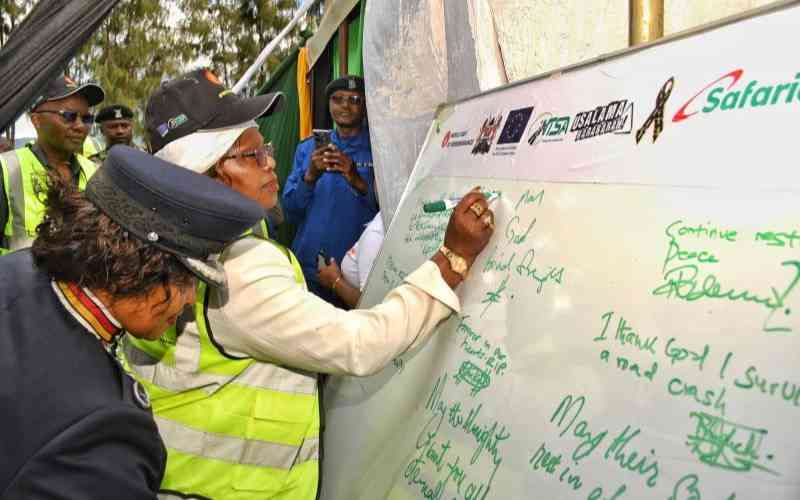×
The Standard e-Paper
Smart Minds Choose Us

On November 19th, Kenya joined the world in marking the World Day of Remembrance for Road Traffic Victims.
The day was endorsed by the UN in 2005 to be marked on the third Sunday of every November. The commemoration was to put on spotlight road traffic victims and their families, acknowledge the crucial work of emergency service providers, draw attention to legal issues and provide better support for victims.